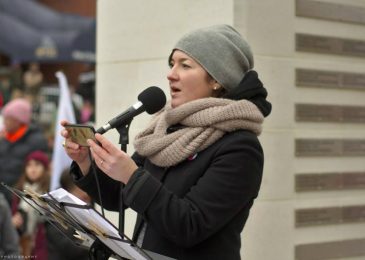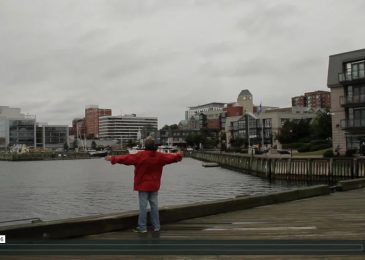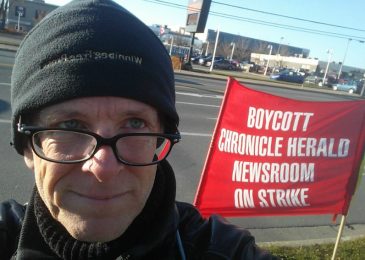A language of resistance. Erin Wunker at the Women’s March rally in Halifax
Erin Wunker, professor at Acadia University ,and author of Notes from a Feminist Killjoy, speaks at yesterday’s Women’s March rally in Halifax. “What language do we use to refuse what is and imagine what could be?”










